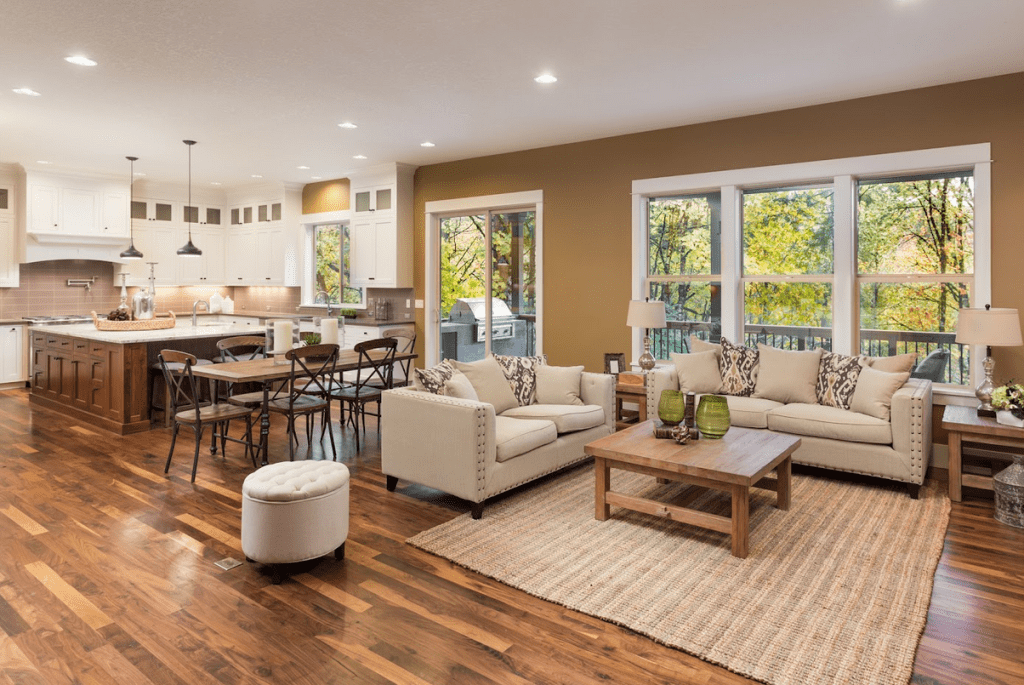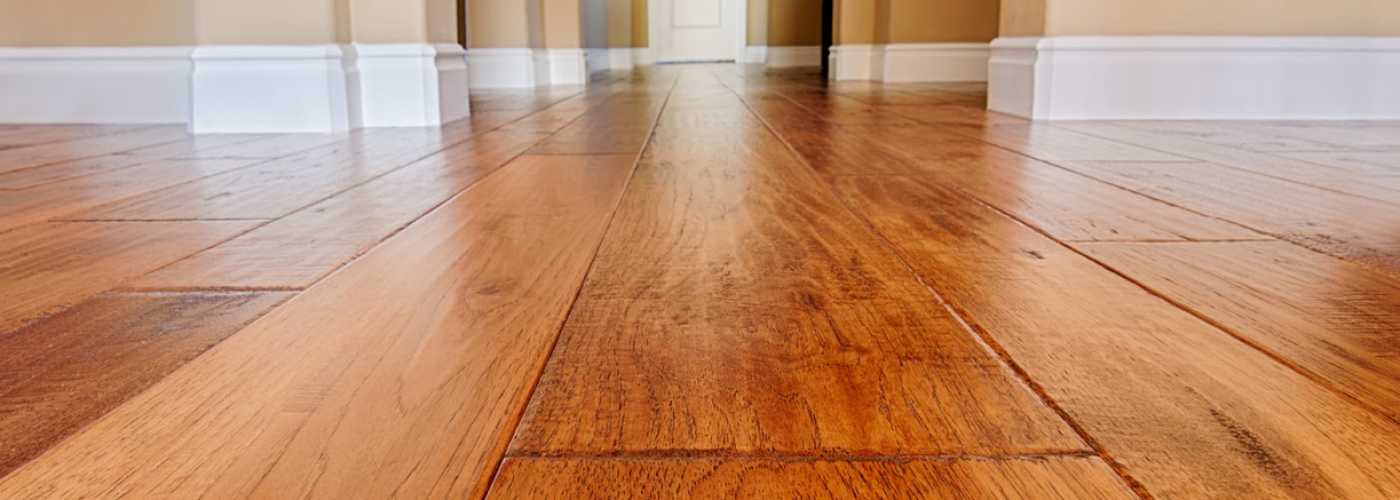When picking the ideal flooring for your home, you usually find yourself torn between two popular options: solid hardwood and engineered wood. Each has unique benefits and drawbacks, making the decision challenging.
If you’re still undecided about which option to select for your space, this article is for you. Read on to understand the differences better and make a wise choice for your flooring.
Hardwood Flooring
A perennial favourite, hardwood flooring comprises solid wood planks. Its natural texture and timeless appearance add elegance to any space. Incorporating options from reputable manufacturers into your design ensures a touch of class and longevity. But you should balance these factors with your specific needs.
The key advantages of hardwood flooring include:
- Natural Beauty and Classic Look
Hardwood floors, with their unique grain patterns and rich colours, are available in wood types like oak, maple, and cherry. Its classic look is versatile, complementing both traditional and modern interiors.
- Easy to Refinish and Maintain
Maintaining hardwood floors is relatively straightforward. You can sand and refinish them multiple times to remove scratches and wear. Flooring experts like Wooden Floors UK recommend regular sweeping and buffing to keep hardwood looking great.
- Durability and Long Lifespan
With proper maintenance, hardwood floors can last decades, becoming more appealing with age. Their sturdiness makes them suitable for high foot traffic areas.
- Increases the Value of Your Home
Hardwood flooring is one of the best flooring options for new homes and is popular among homebuyers, often producing higher resale value. They offer aesthetic appeal and lasting quality.
However, they also have some limitations:
- More Expensive
Such flooring tends to be more expensive. This cost reflects the material’s high quality and long-lasting nature.
- Susceptible to Moisture Damage
Hardwood is generally more sensitive to moisture. In areas prone to spills or humidity, it can warp or swell. It requires careful acclimation and consistent humidity control to prevent damage.
- Climate Restriction
There may be better choices than hardwood floors in humid or dry climates. They can expand or contract in such conditions, leading to gaps or buckling.
- Requires More Maintenance
While hardwood is durable, it does require regular care to maintain its appearance. This includes protecting it from scratches, moisture, sunlight and periodic refinishing.
Installing hardwood flooring is a skilled task, often necessitating professional help. While prices can fluctuate, anticipate investing more in quality hardwood.
Engineered Wood Flooring
Engineered wood flooring is a versatile and practical alternative. This flooring combines a sturdy base with a top layer of hardwood veneer. Using it offers several advantages:
- More Affordable
Engineered wood offers a cost-effective alternative to hardwood. It provides a similar look at a lower price, making it accessible for a broader range of budgets. This affordability doesn’t compromise its aesthetic appeal.
- More Moisture Resistant
Engineered wood’s layered construction offers better resistance to moisture and humidity than hardwood. This makes it suitable for use in areas like basements or over concrete slabs, where hardwood might not be ideal.
- Versatility
One of engineered wood’s advantages is its compatibility with various subfloors, including concrete and radiant heating systems. This flexibility makes it a versatile choice for many homes.
- Easy Installation
Engineered wood flooring often features a click-lock system, simplifying installation. This can benefit DIY enthusiasts, reducing the need for professional installation and associated costs.
- Style and Colour Variety
With engineered wood, you’re not limited in style and colour. The manufacturing process allows for various finishes and looks, ensuring you find the perfect match for your interior design.
Like with regular hardwood, it’s vital to consider engineered wood’s drawbacks:
- Not as Durable
Though durable, it doesn’t match hardwood’s lifespan. Over time, its upper layer may show signs of wear, particularly in places with frequent footfall.
- Refinishing Limits
Engineered wood’s veneered layer limits how often it can be sanded and refinished. If the surface wears down, replacement might be the only option.
- Aesthetic Difference
Although engineered wood mimics the look of hardwood, purists may notice subtle differences. The veneer layer, while natural wood, offers a different depth and richness than solid hardwood.
Installing engineered wood flooring is straightforward, making it a viable option for DIY enthusiasts. In terms of cost, it’s more budget-friendly, offering various choices for different financial plans.
Considerations In Selecting Suitable Wood Flooring
- Budget
Your budget is a crucial factor in choosing between hardwood and engineered wood. While hardwood is a long-term investment, engineered wood offers a more affordable initial cost. Consider both the price of purchase and long-term maintenance.
- Lifestyle
Think about your household’s daily activities. High-traffic areas or homes with pets and children might benefit from the durability of engineered wood. Hardwood, while sturdy, may require more frequent care.
- Climate
Your local climate influences your choice. Engineered wood typically offers better stability under fluctuating temperature conditions. Hardwood might not be suitable for extremely humid or dry regions.
- Subfloor
The type of subfloor you have also matters. Engineered wood can be installed over a variety of subfloors. Hardwood often requires a stable and dry subfloor.
- Style
Opt for a flooring style that enhances your home’s aesthetic. Hardwood and engineered wood offer a range of styles and finishes, with hardwood providing a classic look and engineered wood offering modern and diverse options.
- Maintenance
Be realistic about how much effort you’re prepared to invest in floor maintenance. If you prefer low-maintenance options, engineered wood might be better. Hardwood requires more care but can be restored even without sanding.
Conclusion
Choosing between hardwood and engineered wood flooring is a significant decision for a homeowner. Each type has distinct characteristics that can impact your space’s look, feel, and functionality.
Whether you value hardwood’s classic elegance or engineered wood’s versatility, you must consider factors like budget, lifestyle, climate, subfloor, style, and maintenance. For more detailed information on options, consult specialised resources or flooring professionals to guide your decision-making.






